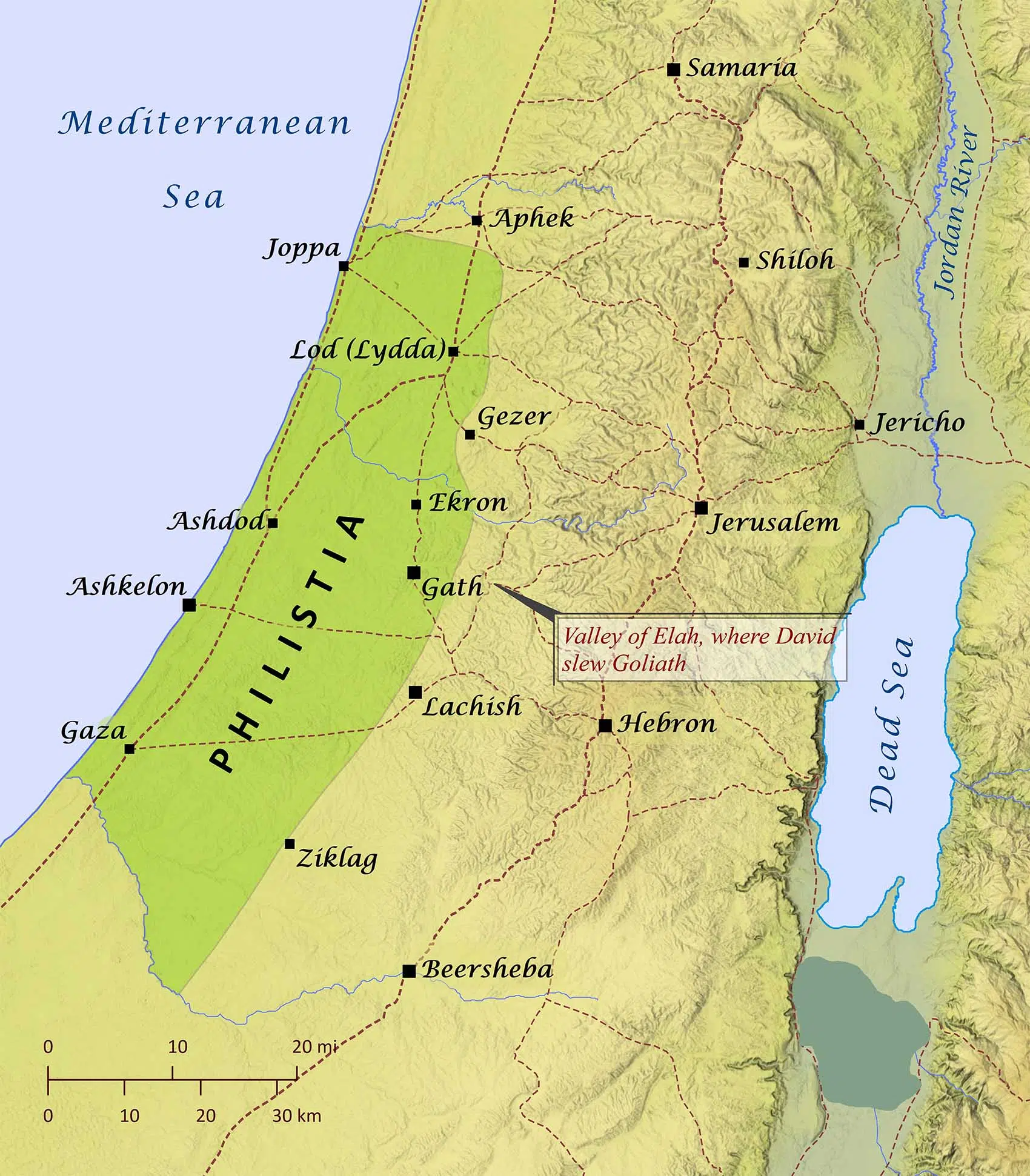Joel addresses the priests, urging them to lament the disaster caused by the locust plague/invading army.
The prophet Joel issued a final call to lament. This time he addressed the priests, the professional men who fulfilled religious duties in Judah. He used a chain of commands to urge the priests to lament and seek God’s favor. He began by saying, Gird yourselves with sackcloth and lament, O priests; wail, O ministers of the altar!
In ancient times, people who mourned usually girded themselves with sackcloth, a garment made of goat or camel hair, which was rough and uncomfortable. The wearing of sackcloth was to symbolize grief or despair. For example, when Jacob thought a wild beast had devoured his son Joseph, he “tore his clothes, and put sackcloth on his loins and mourned for his son many days” (Genesis 37:34). Similarly, Joel asked the priests to wear sackcloth and lament to express their loss because the locust plague had devastated the land of Judah.
The ministers of the altar refer to the priests since they were the professional men who performed the religious duties. These religious men were to lament and wail, expressing their sorrow before the LORD and imploring His favor. So, the prophet continued his call to the priests and said, Come, spend the night in sackcloth, O ministers of my God. Since the locust plague, the invading army came as a chastisement from the Suzerain God, Joel implored the priests to seek God’s presence by humbling themselves before Him.
Since the extent of the catastrophe caused by the locust plague demanded more than lament, Joel called on the priests to consecrate a fast. Fasting is the deliberate, temporary abstention from food for religious purposes. It is not a way of asserting one’s will but a means of opening oneself to God, expressing grief and sorrow over sins, and redirecting oneself to God. It involves making petitions to God and seeking guidance and wisdom. In this sense, it is a process leading to purification (Psalm 69:10).
In addition to consecrating a fast, the religious leaders were to proclaim a solemn assembly. They were to gather the elders and all the inhabitants of the land to the house of the LORD their God. The purpose was so that they might cry out to Him. Solemn assemblies were occasions for corporate worship. During such gatherings, the people ceased to work and convened for set festivals, such as the seventh day of the Feast of Unleavened Bread (Deuteronomy 16:8) or the eighth day of the Feast of Booths (Leviticus 23:36; Numbers 29:35; 2 Chronicles 7:9; Nehemiah 8:18). But in this passage, the solemn assembly was called in an emergency (Joel 2:15–16). The prophet called the priests to convene a public gathering so that everyone might cry out to God with a genuine heart to implore His favor. What was needed was repentance, and a change of heart. Joel calls on the priests to lead that effort.
Biblical Text
13 Gird yourselves with sackcloth
And lament, O priests;
Wail, O ministers of the altar!
Come, spend the night in sackcloth
O ministers of my God,
For the grain offering and the drink offering
Are withheld from the house of your God.
14 Consecrate a fast,
Proclaim a solemn assembly;
Gather the elders
And all the inhabitants of the land
To the house of the Lord your God,
And cry out to the Lord.
Check out our other commentaries:
-
Psalm 51:7-9 meaning
After searching his heart in the presence of God, David realizes the hopeless condition of his sinful heart and he cries out to God. He...... -
Amos 4:4-5 meaning
Amos sarcastically invites the Israelites to enter Bethel and Gilgal to continue their devout worship practices, which are transgressions against God. ...... -
1 Corinthians 9:15-18 meaning
Paul preaches the gospel because Jesus has called him to. While he defends the right for ministers to be financially supported, he does not want...... -
Daniel 7:27-28 meaning
After destroying the boastful horn, God will give rulership to the Son of Man and His people forever....... -
Romans 1:22-23 meaning
The pride of those who choose to not follow God leads them to worship other things, which further leads to becoming foolish.......



